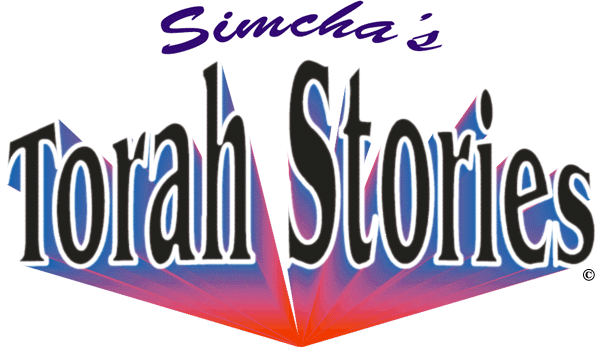Simcha's Torah Stories - Korach

Parshas Korach
SOUNDS GOOD TO ME
Avi, are you coming with me to buy an etrog?
You bet, Chaim. The etrog is part of such an important mitzvah, I wouldn't miss out.
Come, let's go.
Wow Avi! Look at this selection of etrogim. There are so many beautiful ones!
I see, Chaim. This is going to be great fun picking one out. Let's ask that Rabbi to help us. I am sure that he knows all of the halachot (Torah laws) of etrogim.
Rabbi, can to please help us pick out our etrogim?
Of course I can, boys. Let's step over here and find an especially beautiful one for you.
Avi, I have mine all picked out. How about you?
I have it narrowed down to two. Let me go ask the store owner how much they cost. Maybe that will help me make up my mind. Excuse me sir.
Yes, young man.
I would like to know how much these etrogim cost.
Let me see them young man. The one in your left hand is fifty dollars. The one in your right hand is a little less costly. It is only forty-five dollars.
Fifty dollars? For one fruit? That is a lot of money? How can it be?
The Torah instructs us to take the fruit of beautiful tree, which we know is the esrog. Although the tree produces many fruits, very few of them meet the halachic (legal) requirements of the holiday of Succot. It takes much care and work to bring them to the market. That is why they are so expensive.
You know sir, this etrog looks almost like a lemon. A lemon is the fruit of a beautiful tree. Why can't I use a lemon on Succos? I can buy a whole pound of lemons for a dollar.
Young man, our Rabbis have instructed us that the only fruit which is kosher for this mitzvah is the etrog. Other fruits may be very beautiful but they cannot be used.
It is a little hard for me to accept.
Young man, let me tell you about a man who lived a long time ago. His name was Korach. He lived during the time of Moshe Rabbeinu, our teacher Moses. In reality he was jealous of Moshe Rabbeinu's position of leadership of the Jewish people. He cloaked this jealousy in the guise of an argument about a Torah law. A garment needs one blue thread in its tzitzit (fringes) to fulfill its halachic requirements. Therefore surely a garment made entirely of blue thread does not need tzitzit! This was the "question" that Korach posed to Moshe Rabbeinu. You see, he was the first Jew to attempt to rewrite the halacha to suit his own needs. "I don't like the way the Rabbis interpret the Torah. I will interpret it differently. It sounds good to me." So you see, young man, the Rabbis know far more than we do, and it is ultimately their job to teach us how the interpret the Torah. We cannot change the halacha solely on the basis of our own opinion.
Thank you so much for explaining that to me, sir. Do you know why the lemon looked more beautiful to me than the etrog did?
Why, young man?
Because I was not wearing my "halachic eyeglasses".
Sounds good to me.

An Indian guru tells his two sons to race their camels to a distant city to see who will inherit his fortune. The one whose camel is slower will win. The brothers, after wandering aimlessly for days, ask a wise man for advise. After hearing the advice they jump on the camels and race as fast as they can to the city. What does the wise man say?
Answer to Last Week's Question
Every day, a wife picks up her husband at train station at five o'clock. One day he arrives early at four o'clock and he begins to walk home along the road which his wife would be traveling. She meets him and takes him the rest of the way. If he would have waited at the train station, she would have arrived there at five. As it turned out, they reached home 20 minutes early.
What time was it when she picked him up?
The Answer
4:50. If they made it home 20 minutes early, then the trip was 20 minutes shorter. Then it was 10 minutes shorter going, and 10 minutes shorter coming back home. Since it was 10 minutes shorter going, then she picked him up at 10 'til 5:00, or 4:50.
Ohr Somayach's Youth Page r
Editor: Reuven Subar
General Editor: Rabbi Moshe Newman
Layout Design: Michael Treblow
HTML: Eli Ballon






